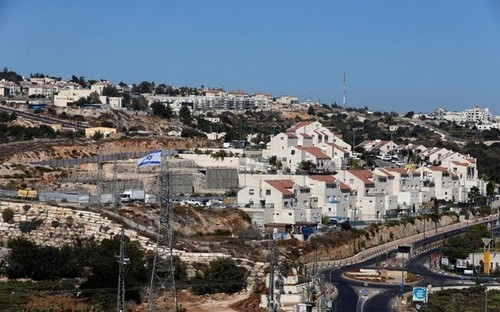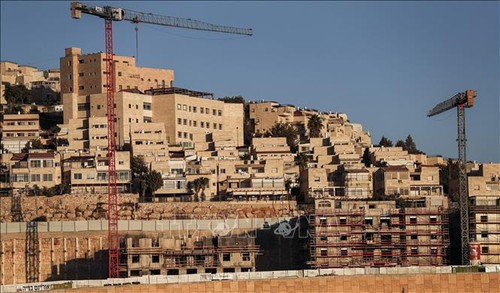|
 Israel's settlement Kiryat Arbatại in Hebron, the West Bank, on September 11, 2018 Israel's settlement Kiryat Arbatại in Hebron, the West Bank, on September 11, 2018
(Photo: Reuters)
|
Jewish settlements have long been a major obstacle to Israel-Palestine peace efforts. According to UN Security Council resolutions, Jewish settlements are illegal because they violate the Fourth Geneva Convention, which states that an occupying power shall not deport or transfer parts of its own civilian population into the territory it occupies.
Contributing factors
The US policy shift on Jewish settlements is the result of a 1-year joint mission between the US State Department and White House Senior Adviser Jared Kushner, the son-in-law of President Trump. The decision, which was announced on Monday, as an impeachment inquiring heats up in the US House of Representatives, could be timed to distract the public from accusations against the President.
President Trump desperately needs Jewish-American votes to win a second term in next year’s presidential election. During his 2016 campaign, Trump promised: “When I become president, the days of treating Israel like a second-class citizen will end on day one.” Now, just months before the 2020 election, he has continued his support for Israel by having Secretary of State Mike Pompeo declare: 'The establishment of Israeli civilian settlements is not, per se, inconsistent with international law.'
 Construction site of Jewish settlement Ramat Shlomo in Jerusalem (Photo: AFP/VNA) Construction site of Jewish settlement Ramat Shlomo in Jerusalem (Photo: AFP/VNA) |
Observers have noted that President Trump has a special bond with Israeli Prime Minister Benjamin Netanyahu, who failed in a recent election to win enough votes to form a government, and this week was indicted on bribery, fraud, and breach of trust charges.
Trump has many times promised a new peace initiative for the Middle East touted by him as “the deal of the century”, but no feasible plan has been produced. By creating a new narrative in the region, he is diverting public attention from his delayed his peace plan.
Disregard for peaceful solution to Israel-Palestine conflict
Whatever his reasons are, Trump’s latest decision can be added to a string of actions escalating tensions with Palestine and its supporters in the Middle East. The US has recognized Jerusalem as Israel’s capital city, moved its embassy from Tel Aviv to Jerusalem, and recognized Israel’s sovereignty over the Golan Heights, a Syrian territory occupied and administered by Israel.
Before the Trump administration, whether Democrats or Republicans held power, Washington took actions to pressure Israel to halt construction of new settlements in the West Bank. At the end of his term, President Barack Obama refused to veto a UN Security Council resolution demanding a halt to all Israeli settlements in the occupied territories. President Trump has reversed his predecessors’ policy, complicating the Middle East peace process and increasing Israel-Palestine hostility.